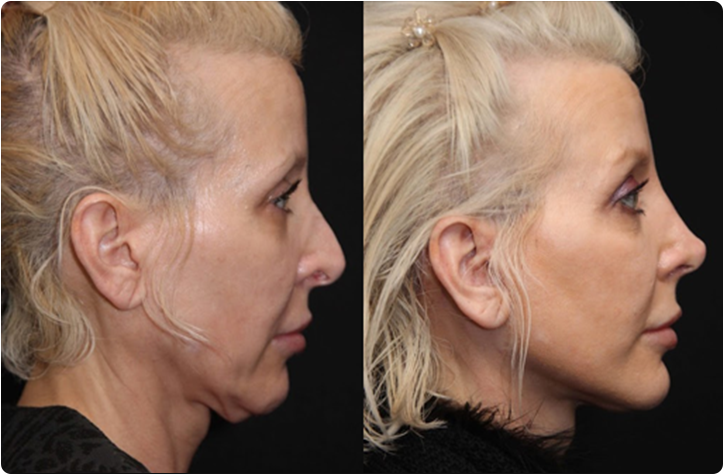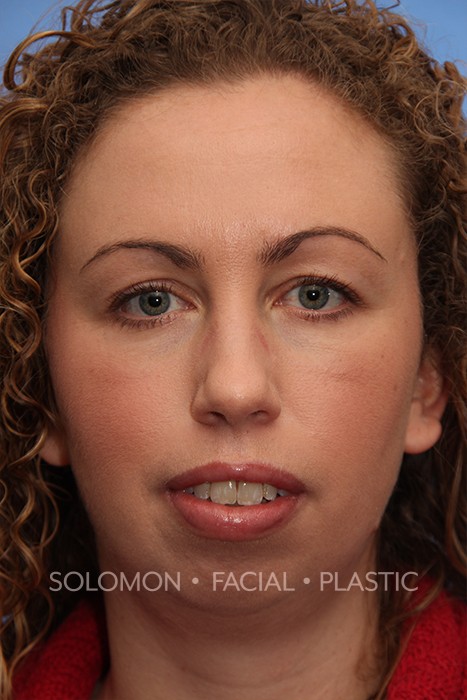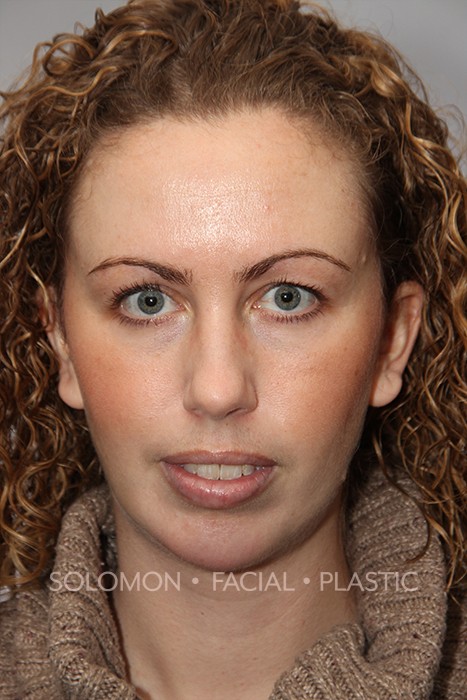Facial Implant Overview
Facial Implants
Achieving the delicate aesthetic balance between the features of the human face is the essence of facial cosmetic surgery. The harmony of the facial structures may be disrupted as a result of hereditary factors, the aging process or through injury. Often facial implant surgery is the best solution to restore or enhance natural angles and correct the proportion of three main facial structures – the chin, cheek and jaw.
A chin implant may be needed if there is no clear distinction between the chin and the neck. The chin may appear too small in size or it may not project in proportion to the forehead and cheek area.
Jaw implants can increase the width of the lower third of the face. If the jaw is not well-defined in relation to the neck or the jaw does not create a pleasing angle from ear to chin, an implant may be the answer.
With some faces, the cheekbones may appear flat or in some cases, even recessed. A cheek implant can increase the projection in that area and bring a more balanced, rounded, youthful appearance to the midface.
Sometimes more than one area of the face will need implants to achieve the ideal harmony among the structures. Implants may also be used along with a rhinoplasty procedure or otoplasty for optimum results. Implants are often used to augment results achieved from a facelift, brow lift or eyelid lift. Dr. Solomon will be able to suggest such combinations of procedures based on your individual situation. Arranging the best combination of complementary procedures in advance can save time and cost involved in anesthesia and facility fees as well as providing optimum aesthetic results.
The best candidates for facial implant surgery have skin with enough elasticity to accommodate the implanted material because implants increase projection of the particular feature, making it appear more distinct. It is important to note that facial implants cannot correct dental or orthodontic concerns.
Facial implants are made from a variety of solid, biocompatible FDA-approved materials that can be molded, cut and shaped to accomplish the particular correction desired. Dr. Solomon will assess your unique needs to guide him to the best choice of implant for you.
Incisions are made in the mouth or discrete external locations in soft tissue that can allow space and offer support for the implants. For chin implants, the incisions are typically made inside the mouth along the crease of the lower lip and gums. An incision just beneath the chin is an alternative incision site. Incisions for jaw implants are made further back inside the mouth between cheek and gums on both sides of the mouth. Depending on exactly where the cheek implants are to be positioned, they may be inserted through incisions in the mouth, the lower eyelid or within the hairline.
Facial implant surgery is most often performed under local anesthesia alone or local anesthesia with sedation. In some cases, general anesthesia may be recommended instead. It can be performed in a physician’s accredited surgical suite, hospital or outpatient surgery center. The procedure takes only about one half hour to an hour to perform and patients enjoy almost immediate results. Initial swelling usually subsides in about two to four weeks and will continue to dissipate over the next one to two months when the final results of the implant procedure should be fully realized.
Closing incisions is done with absorbable sutures or with stitches that are removed within one to two weeks after surgery. It is important that incisions not be subjected to unusual force, rubbing, or motion during healing. You may have swelling, discoloration of the skin, numbness and/or discomfort during the recovery process.
There are risks to facial implant procedures, including but not limited to bleeding, infection, nerve damage, and reaction to anesthesia. Dr. Solomon will discuss these risks with you and give you detailed instructions on how to prepare for your surgery and how to take care of yourself afterwards to minimize those risks.
If you are considering any facial implant procedure, it is very important to choose your surgeon carefully. Choose a surgeon who is specializes in surgery of the Face and Neck and performs facial implants frequently. You can be assured with the knowledge that Dr. Philip Solomon is board certified by the ABFPRS and specializes exclusively in Face and Neck Surgery.
Call us today to see if facial implants may be the solution you have been searching for.

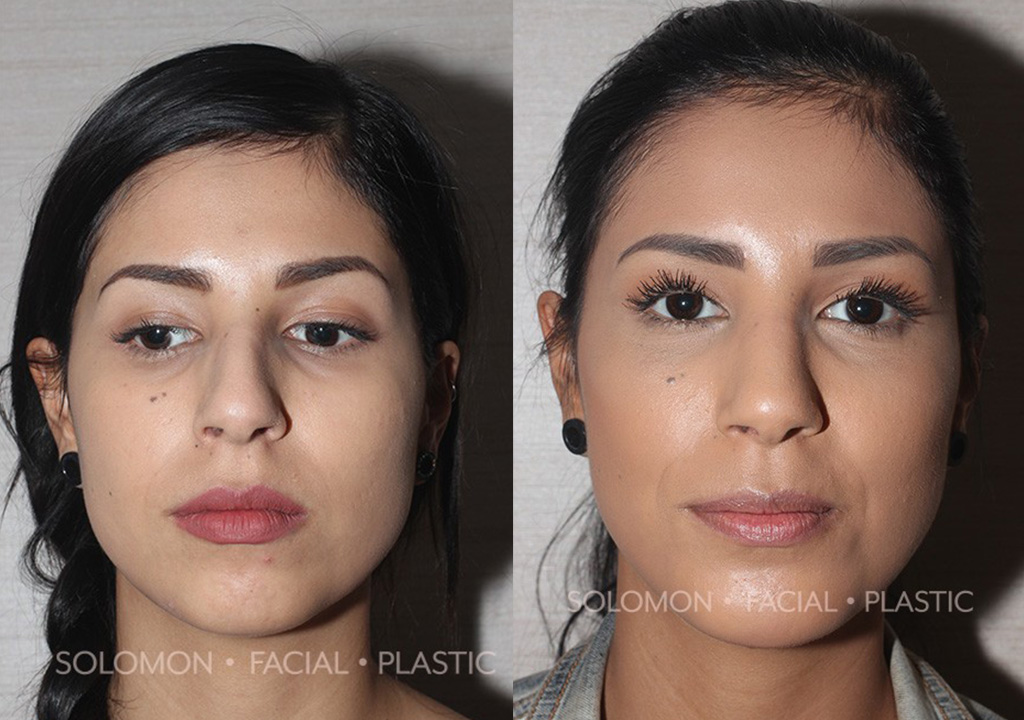
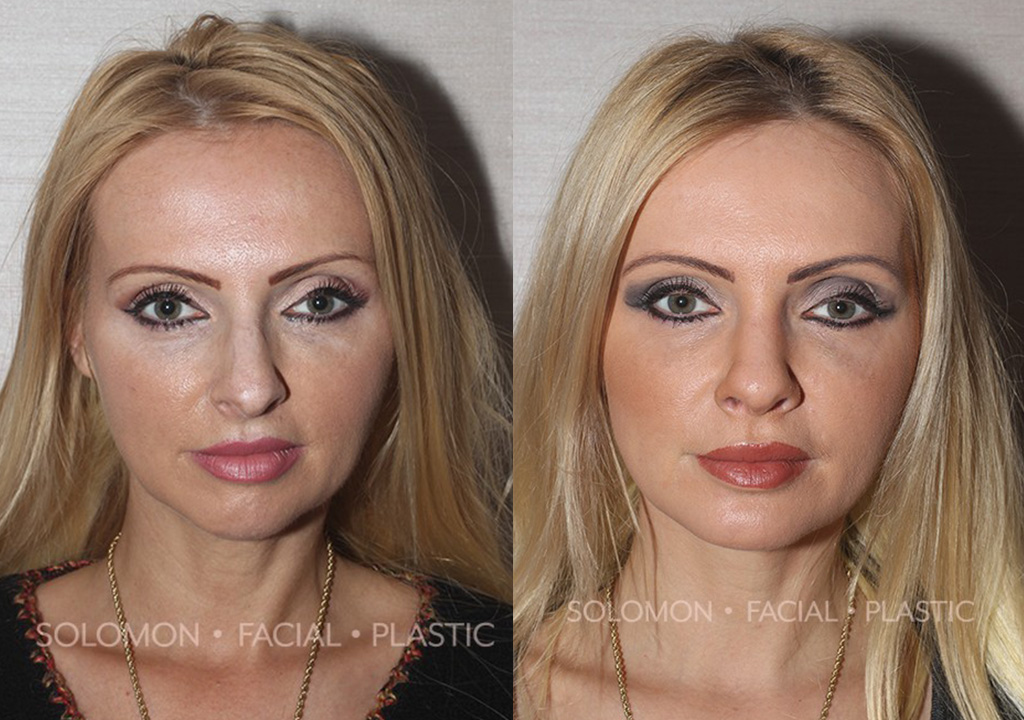
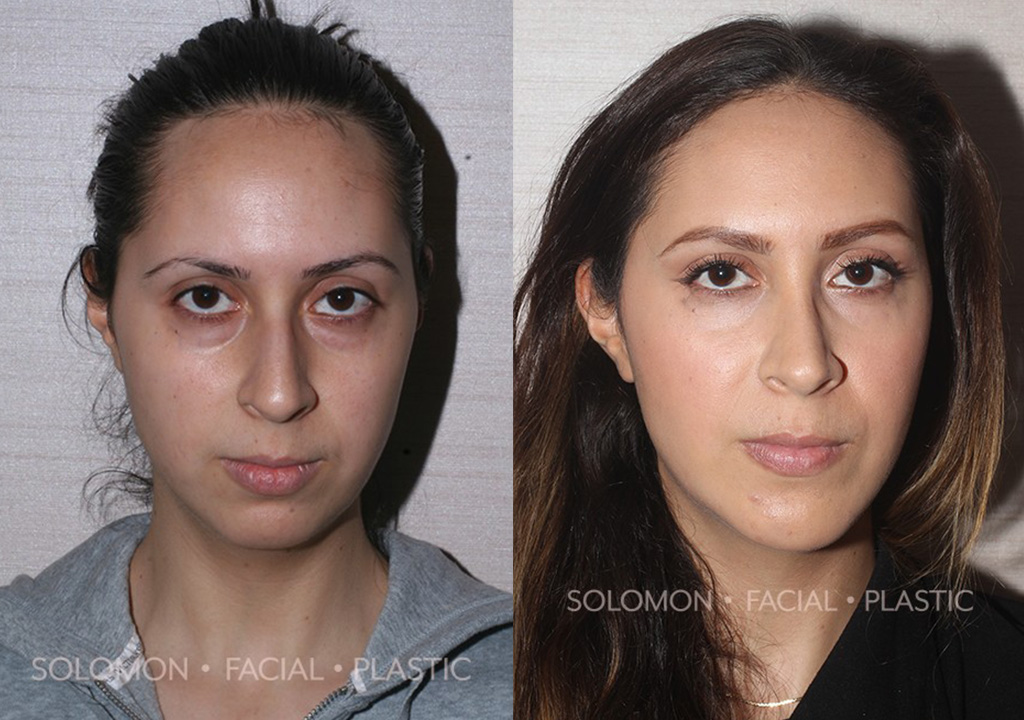
 Chin Implants : Cosmetic Surgery
Chin Implants : Cosmetic Surgery










